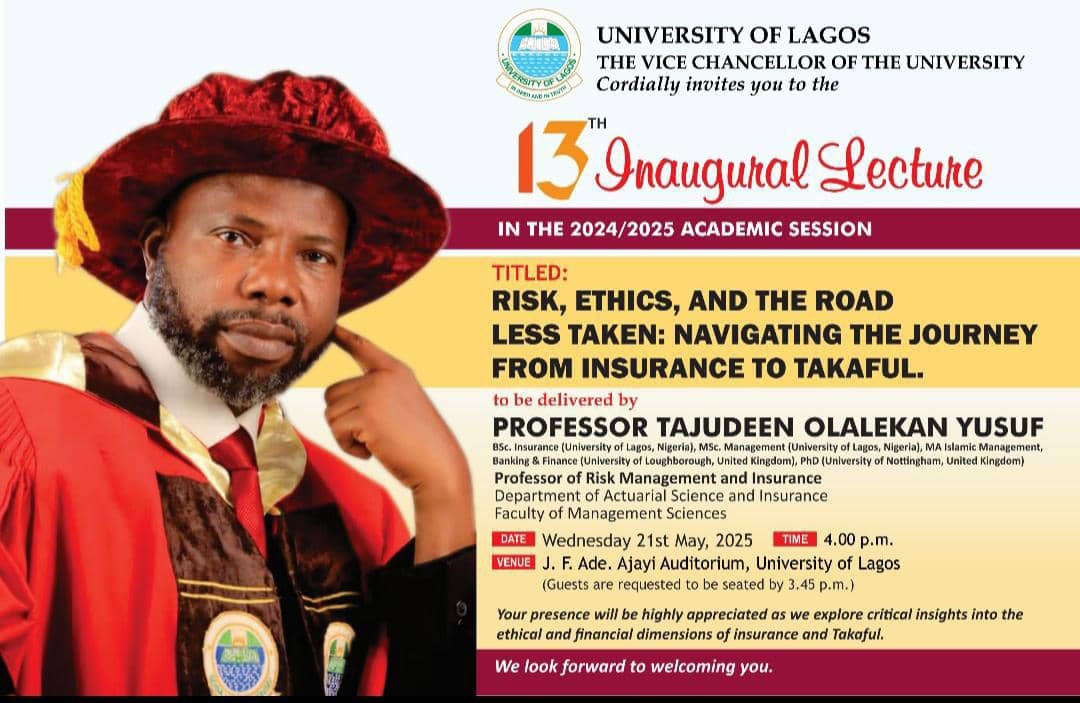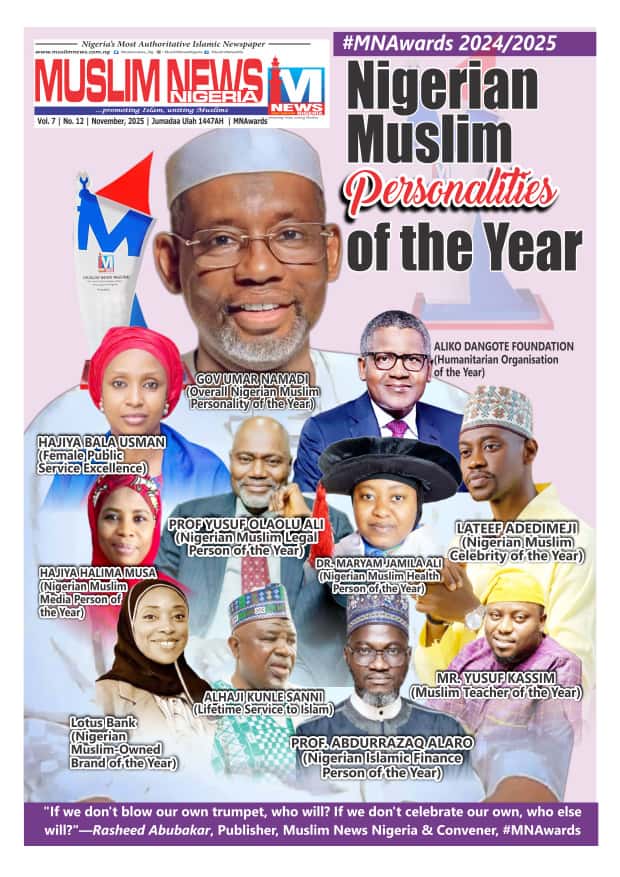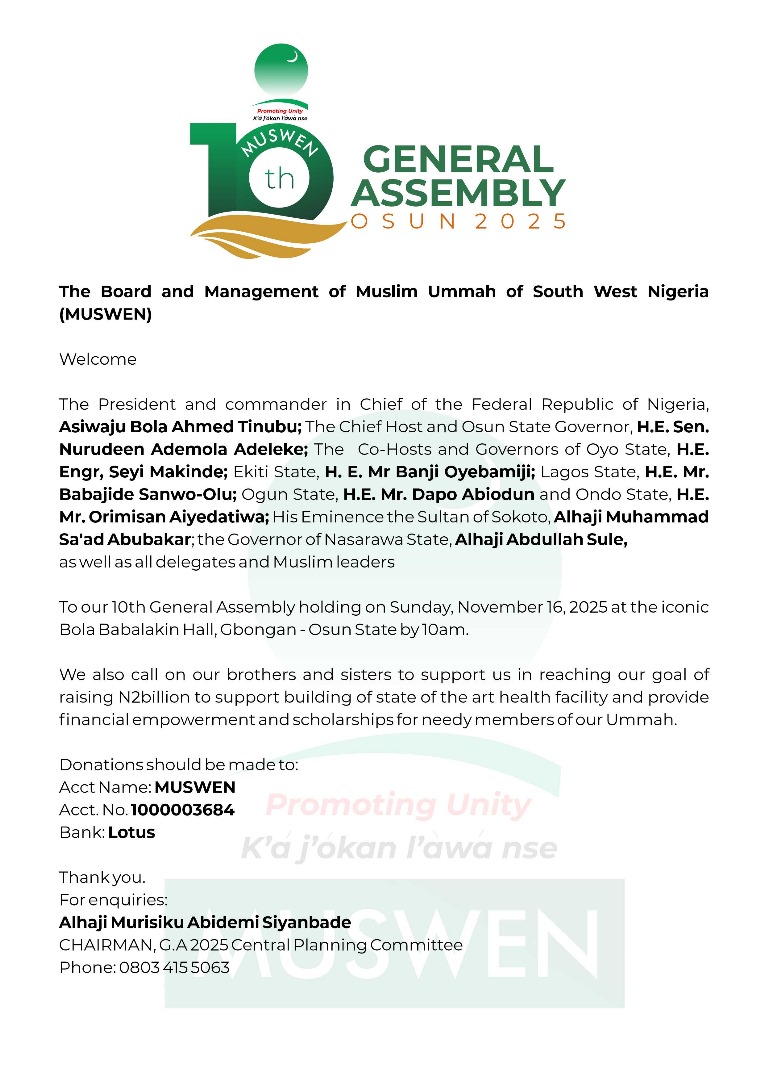In a summary note of his presentation shared with this newspaper, Prof Yusuf examines how conventional and sharia-based Takaful models handle risk and ethics.
The pioneer Professor of ethical Insurance in the University of Lagos (UNILAG), Akoka, Prof Tajudeen Yusuf, will today Wednesday, May 21 deliver his Inaugural Lecture. The Lecture focusses on the ethical and practical dimensions of Takaful as an Islamic alternative to conventional insurance.
Prof Yusuf’s Inaugural Lecture is titled “Risk, Ethics and the Road Less Taken: Navigating the Journey from Insurance to Takaful” and the venue is J.F. Ade Ajayi Auditorium, University of Lagos, by 4: 00pm (Nigerian time).
In a summary note of his presentation shared with this newspaper, Prof Yusuf examines how conventional and sharia-based Takaful models handle risk and ethics.
He highlighted significant considerations for individuals, businesses, financial institutions, and policymakers.
While traditional insurance systems typically operate on the basis of risk transfer and interest-based transactions, Takaful, based on the principle of non-interest Islamic banking, is rooted in mutual cooperation and risk-sharing.
Prof Yusuf explained that the two versions of insurance policies influence how each model responds to modern risks such as climate change, cyber threats, pandemics and global economic instability.
He said the Islamic model, Takaful, is designed to avoid excessive uncertainty.
The future of Takaful
The university lecturer argues that the Takaful framework, though still developing, presents a viable and ethically sound tool for managing such uncertainties.
He said regulatory ambiguity, limited product standardisation, and low public awareness have affected the wider adoption of Takaful.
Despite these constraints, he said the outlook for Takaful in Nigeria appears increasingly positive as Nigeria’s insurance authority recently revealed that while Takaful currently accounts for just one to two per cent of the national insurance market, it has recorded an impressive average annual growth rate of over 34 per cent in contributions over the past four years.
He said the promising outlook for Nigeria’s Takaful market is reflective of a positive global forecast where Research and Markets, a global firm that provides market insights, estimated 124 per cent growth in nine years from $33 billion in 2023 to $74 billion by 2032.
Research focus
Prof Yusuf said the research work introduces a structured comparison of risk management approaches in Takaful and conventional insurance, adding it provides clarity on their operational and ethical distinctions.
“By integrating contemporary issues such as climate and cyber risks, the study extends existing knowledge on ethical finance within an Islamic context,” he said.
“The findings also offer a foundation for further studies on the evolution of Islamic finance in response to global economic uncertainties.”
He said the study offers clear guidance for policy makers and financial service providers seeking to develop ethical insurance products that cater to diverse risk environments, and provide practical applications that can help businesses adopt Shariah-compliant insurance mechanisms to mitigate financial uncertainties ethically.
He stressed that by bridging theoretical insight with actionable recommendations, the study reinforces the relevance of Takaful in today’s rapidly evolving financial and risk landscape.
He added that this positions the model not only as a faith-based alternative but as a sustainable and adaptable mechanism for inclusive economic resilience.
Source: Premium Times







